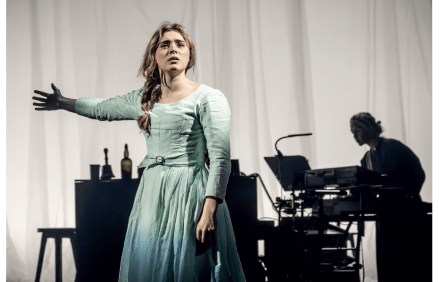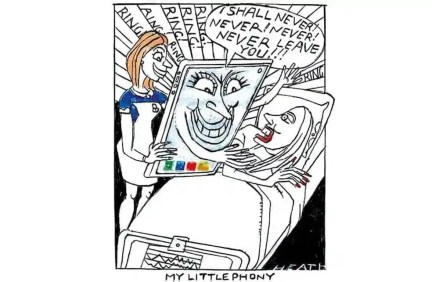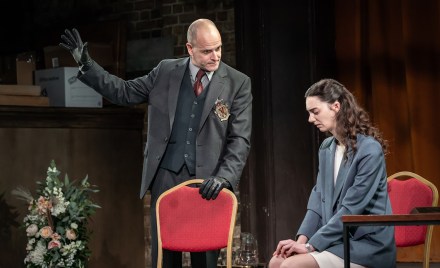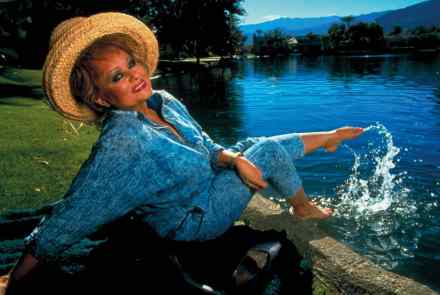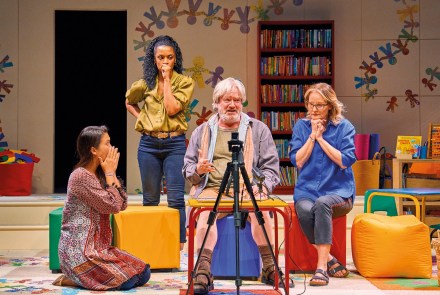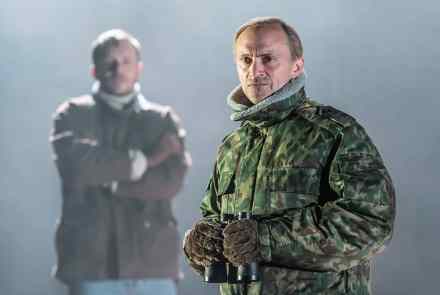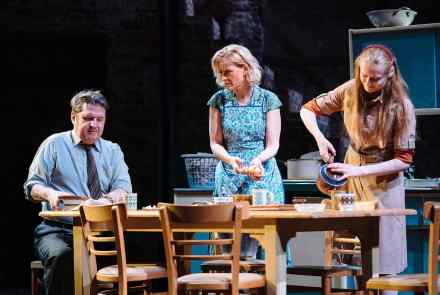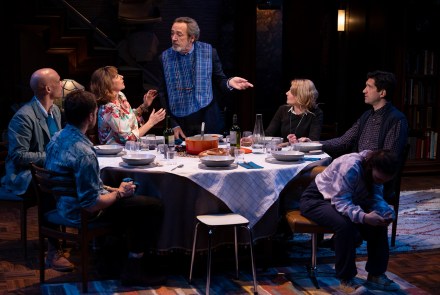Unmissable – for professors of gender studies: Alma Mater, at the Almeida Theatre, reviewed
Alma Mater is a topical melodrama set on a university campus. The new principal, Jo, (amusingly played by Justine Mitchell) is a radical feminist who recalls the bitter struggles of the 1980s when she strove to put women on an equal footing with men. Her task now is to address the college’s reputation for ‘binge-drinking, partying and casual sex’. To ingratiate herself with the students she makes a speech full of swear words which greatly impresses the first years, apparently. Then a nightmare unfolds. A naive Welsh fresher, Paige, attends a fancy dress party where she’s sexually assaulted by a handsome older student. Drink was involved. Paige admits that she



